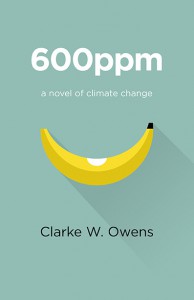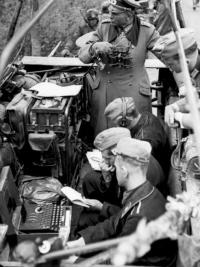
- Cancer & Chaos

I started watching this pretty glue channel called Historia. They had these heavy-duty intellectuals on there, talking about all kinds of stuff. There was this one named Professor Brandon Cognovit, who had written a history of the Cold War in the mid-twentieth century.
"The fear of Communism in the West," said Professor Cognovit, "which was used so effectively to control the hearts, minds, and actions of the masses, was a displaced fear of cancer and chaos. In fact, you do not have to look very deeply into the media of this time to see that the Communist threat was often overtly described as a 'cancer', and was allegorized in science fiction films as a creeping threat that surrounded you and threatened to overwhelm you by infecting the bodies and minds of those previously friendly. This is analogous to the cells of the body, which are gradually overtaken by cancer cells and are converted from functioning, 'friendly' cells to hostile, life-threatening cells. The fear of cancer was quite powerful at this time. Whereas today many types of cancer are curable, and most are treatable with significant positive effects, in the mid-twentieth century, it was a fearsome malady, seen as the one disease with No Cure. So we should never underestimate the power of this metaphor of a 'cancer' in Cold War anti-Communist ideology.
"The fear of chaos, on the other hand, is seen in the many references, particularly in the very early days of the Red Scare, to the godlessness of Communism. Marx's famous line that religion was the 'opium of the people' became well-known in the West, as did the hostile policy toward religion taken up by the Soviet regime. And the West, I would say particularly America, was very susceptible to the argument that Communism was a form of mind-control that sought to take away your religion, leaving you to the cold, empty, perhaps brutally scientific realm of a universe without a loving heavenly Father overseeing and making sense of it all. Fear of cancer and fear of chaos are very strong psychological motivators, and they were used, quite adroitly, in my opinion, to garner support for policies that were, in some cases, of rather dubious merit, such as the McCarthy hearings, the Viet Nam war, or the arms-for-hostages deal in the Reagan administration to support anti-Communist proxy wars in Central America, and so on. Eventually, as these policies dragged on and became more and more transparent, people began to see through them, and there would be growing opposition, and eventually the policies collapsed. But these were ad hoc collapses, controllable collapses, from the point of view of Cold War anti-Communist ideology.
"What then developed, during the final phase of the Cold War, under Reagan, was a kind of reification of the old ideas, primarily that we were not crazy to oppose cancer and chaos, that it was, in fact, cancer and chaos that we had all along opposed—the idea of the Evil Empire. Here, again, was an idea reminiscent of science fiction films that had been popular in the seventies -- Star Wars donating the idea. Now that we were not fighting a shooting war on any large scale, such cartoonish concepts were not subject to the skepticism that arises when one confronts war on a daily basis and is forced to ask whether the threat is real or not, and worth opposing with large expenditures of blood and treasure. And then, when the Soviet Union fell of its own weight, we found ourselves with a pattern of thinking which had, no longer, any external object on which to drape it, until it was later possible to fashion a Terrorist Threat which could take the place of the former Communist Threat, and could become a kind of new, potential Evil Empire of its own. The genius of this new incarnation of the idea was that it lacked a corresponding nation state, and was all the more fearsome by being so amorphous. It now lacked any necessary finiteness, and could be successfully used to spawn a psychology of endless war capable of fueling the economic engines of the military industrial complex of which President Eisenhower warned in the early days of the Cold War."
That guy could sure talk.
Whenever I watched Historia, I kept my dictionary vid handy and had it online for immediate real-time definitions.
- Paperback £9.99 || $16.95 Jul 31, 2015
978-1-78279-992-4
BUY ONLINE> AMAZON US
> AMAZON UK - eBook £4.99 || $7.99 Jul 31, 2015
978-1-78279-993-1
BUY ONLINE> AMAZON US
> AMAZON UK
Categories:
0 comments on this article







